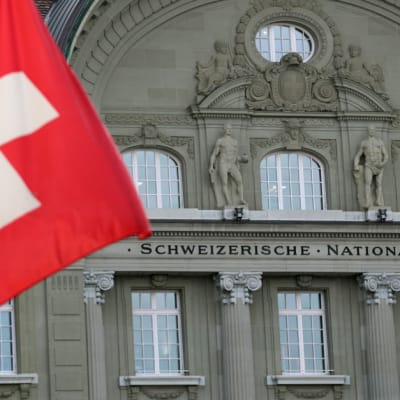Fixed Income Market overview
Despite a vast flurry of geopolitical headlines and turmoil stemming from the Trump administration's domestic and international policy overhaul, fixed income posted another solid month of performance. US duration was the main outperformer, and while US spreads widened into month end the duration impact plus elevated carry was enough to keep high yield total returns positive too for the month. In Europe the duration effect was less positive, but spreads tightened, leaving high yield as the outperformer for the block. Sector trends were driven by tariff news flow sensitivity, with Autos in the IG space taking the brunt of the volatility, as spreads moved in both directions on the shifting headlines.
Rewriting of the political status quo meant that the first month of the new Trump administration drove price action through the month, with news feeds being hit by market shifting headlines on an almost daily basis. Broadly speaking, the main talking points fell into one of three categories: Trade tariffs, geopolitics surrounding the Russia Ukraine war, and US fiscal rebalancing.
Implementation of President Trump's trade tariff pledge played out erratically through the month, with a range of tariff ideas being floated from blanket 25% duties to reciprocal tariffs to sector targeted penalties. Broadly speaking, the continued threat of implementation by certain deadlines and ultimate extension of these deadlines has resulted in a lot of volatility and noise, but little actual concrete change in trade policy thus far. This keeps us of the view that appetite for sizable tariff implementation is more limited than rhetoric would imply, but threats will continue to be used to exert leverage over trade partners to achieve the administration's wide-reaching goals on international policy. The impact on markets has largely played out through FX markets and risk markets (mainly equities), with the impact being taken as stagflationary in the short term, and growth negative in the medium term.
Outisde of international politics, the tariff strategy is also an attempt at increasing revenues domestically to rebalance the fiscal deficit, alongside strict cost cutting measures being implemented by the DOGE department headed by Elon Musk. The latter has manifested as sweeping cuts to government jobs and spending initiatives. The exact details of the savings are unclear, but the numbers touted are unlikely to make a huge dent in the vast size of the US deficit, in our opinion. Yet, a less focused on development for the fiscal balance related to the increasing interest cost of rolling government debt at elevated yields. As such, Treasury secretary Bessant's comments in the month were key, highlighting a strong desire to keep longer term rates in check, namely the 10y treasury yield. How actively the treasury looks to contain 10y yields is likely to be much more impactful for the fiscal trajectory in the coming years, and warrants close monitoring.
Arguably the most shocking developments of the month came in the US' stance on the Russia-Ukraine war. Trump's push for a peace deal centered around rebuilding lines with Russia and President Putin, whilst exerting pressure on Ukraine and President Zelensky to accept a number of Russia-backed concessions to bring an end to the conflict. Ultimately this led to a remarkable rewriting of international allegiances, with the US reestablishing ties with Russia and Europe uniting in support of Ukraine. Most notable, this has resulted in a drive for Europe to re-arm though fiscally backed defense and infrastructure spending, with Germany looking to push through removal of the debt brake to increase borrowing. This is despite the election of a new Budestag due to first sit on March 25th, meaning that the constitutional change would need to be pushed through a currently incumbent parliament. The legalities of this will be complicated and be a key theme through March and beyond.
Outside of politics, macro-economic data didn't quell stagflation concerns, with inflation surprising higher, whilst soft growth data disappointed to the point that the much-watched Atalanta Fed growth nowcaster fell into heavily negative territory. A lot of this dynamic appears to be driven by front loading of imports ahead of tariffs pushing prices up and generating a hefty trade deficit and hence lower GDP estimates. To us, this underlines the disruptive influence that these sharp policy shifts can cause, even if they aren't implemented in full and used more for leverage internationally.
Although the macro landscape has been highly volatile, we're encouraged by the robust performance of fixed income markets, particularly credit which has exhibited limited volatility and continued to produce solid carry returns. Cutting through the noise is ever more challenging, but we continue to try and focus on concrete policy trends and changes alongside the robust balance sheet fundamental picture. For example, the move towards fiscal expansion in Europe, after over a decade of frugality, whilst the US pushes for fiscal rebalancing is a rather monumental shift that would favour duration in the US over Europe, but more supportive of growth assets in the other direction. That said, news flow is fluid and delicately balanced, so we remain nimble to take advantage of overreactions as we see them develop, whilst maintaining a core of defensive carry focused exposure to harvest the benefits of higher yields via fundamentally strong corporates.
Portfolio activity
Demand for new issues remained high throughout February. We maintained our pricing discipline as, in our view, many issuers were able to take advantage of this strong demand and issue through what we consider fair value. We added certain new issues at attractive valuations:
Barry Callebaut (leading chocolate supplier) has suffered from a sudden spike in cocoa bean prices since early 2024 forcing the company to maintain high liquidity. Despite the substantial operating difficulties the company will face as long as cocoa prices remain elevated, we believe the company should be able to maintain its investment grade rating. The new issue provided a material premium on an elevated downgrade risk and an attractive 0.25% coupon step-up per notch downgrade per rating agency offers some protection in an extreme downside case.
Financial services firms typically conduct most of their regulatory capital financing in the beginning of the year. We added the following AT1 bonds from high quality firms which we felt offered a yield which overestimated the credit risks facing these firms - Lloyds (UK Bank), Banques Internationale a Luxembourg (Luxembourg commercial/corporate bank), Credit Agricole (French Bank), Julius Baer (Swiss Private Bank).
There were several idiosyncratic events in individual companies that we acted upon in the secondary market:
French banks have underperformed over the last few months and high-quality names now trade, in our view, at overly cautious levels for their credit fundamentals, namely Societe Generale (French bank). Societe Generale showed a significant operational recovery in their Q4 2024 earnings after which we added an AT1 bond.
ITV (UK broadcasting network) is the potential target of a partial or full takeover by private equity investors causing the firm to trade materially lower than peers. We see limited further downside in the bonds driven by a takeover and as a standalone the firm has strong fundamentals. We added the bond maturing in 2032 which offered appealing positive optionality as it has a change of control option allowing investors to put the bond back to the company at 100 in the case of a takeover as well as 1.25% coupon step on downgrade to high yield.
Virgin Media O2 (UK telecom operator) is in the process of divesting their national fixed network segment into an independent company (NetCo). The company has not provided a financing plan for NetCo however we expect that any new debt will be used to reduce near term maturities and on a leverage neutral basis. This uncertainty has caused the company's bonds to trade lower than peers but we believe Virgin Media O2 has a strong credit quality making the company's existing secured debt particularly attractive given their low prices and high yield, so we added a GBP bond from the company's multi-currency capital structure.
SES (satellites services provider) has been in recent headlines around the Federal Communications Commission (FCC)'s decision to proceed with the C-Band auction. This would be positive for the credit quality of SES as they would generate substantial capital through the auction and alleviate near-term capital markets requirements. With the potential auction proceeds easing the pressure for SES to replace the existing perpetual hybrid bonds immediately, we switched out of the low coupon perpetual hybrid into high coupon dated hybrid. The latter has a more attractive risk/return profile in our opinion.
Fortune Star (Chinese Conglomerate) where we maintained our total exposure to the company after accepting an attractive tender offer for the bond maturing in 2025 by adding the bond maturing in 2027.
We took profit on Imerys (French building materials provider), Fressnapf (German pet products retailer), La Poste's hybrid bond (French courier service), Ceconomy (German electronics retailer), BP (UK energy company), Proximus (Belgian communications services provider) and Achmea (Dutch insurance provider).
Performance and characteristics
In February the fund outperformed its benchmark. The outperformance was driven by our positions in the real estate and banking sectors which offset a weakness in the oil & gas sector. The new issue market has been active but challenging, with new issues often pricing in line or through fair value. We have maintained pricing discipline, only participating where we see value.
Year to date the fund has underperformed its benchmark. The fund's overweight in BBs contributed positively. Our positions in the real estate and financials sectors drove the outperformance offsetting the weakness in the telecommunications sector and smaller negative contributions from several other sectors. Top single name contributors to performance include real estate firm Aroundtown and French retailer Auchan. The largest detractor from performance is an AT1 bond from NatWest Group, which retraced some of its strong performance from the end of 2024.









